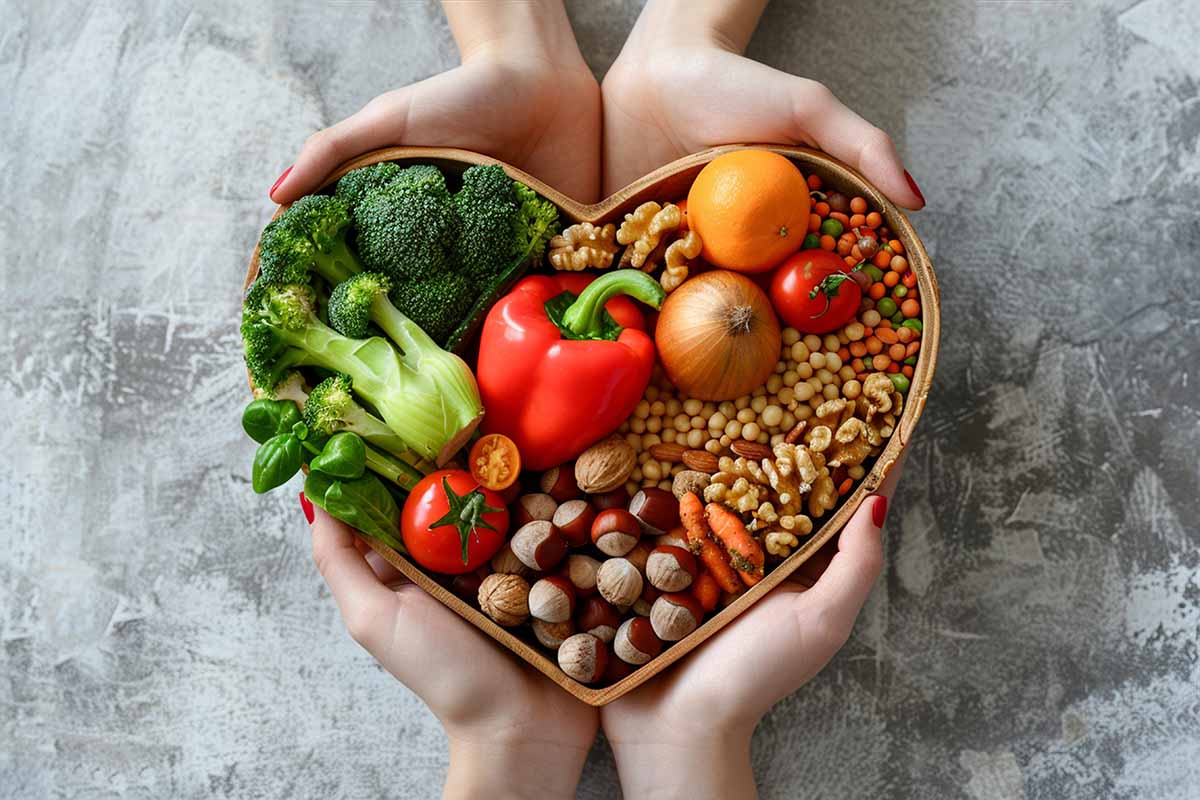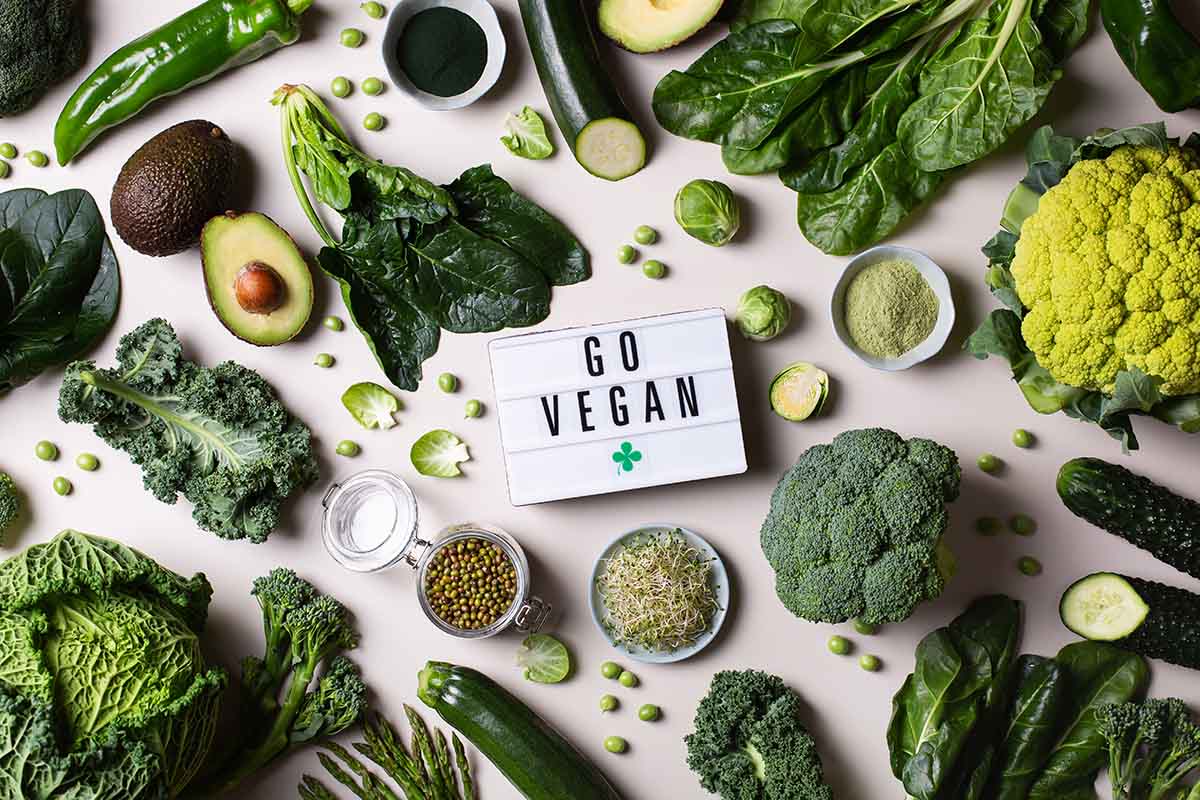How Vegan Nutrition Improves Digestive Health
Top Three Takeaways
- Fiber and Prebiotics Fuel Gut Health. Vegan diets, rich in fiber and prebiotics from fruits, vegetables, and whole grains, support gut bacteria, improving digestion and reducing inflammation.
- Avoid Inflammatory Foods. Excluding red meat and high-fat dairy helps maintain gut lining balance, reducing bloating, discomfort, and digestive disorders like IBS.
- Mindful Planning is Essential. Vegan diets require supplements for nutrients like B12 and iron; pairing foods enhances absorption, ensuring optimal digestive health benefits.
In recent years, vegan nutrition has gained a lot of popularity. Just because it offers a great improvement to overall health.
Not only this, it also has shifted a significant focus on digestive health.
This is one of the reasons why now healthcare says that a plant-based diet can be a game-changer for your gut. Just like a one-size-fits-all solution!
Let’s explore how veganism influences digestive health, what makes it unique, and how to navigate potential challenges to reap its benefits.
Do You Know the Gut-Health Connection?
Your gut is home to trillions of microorganisms which are collectively known as the gut microbiome.
This microscopic ecosystem plays a crucial role in digestion, nutrient absorption, immune function, and even mental health.
Keep in mind that a balanced gut microbiome thrives on fiber-rich foods—and that’s where vegan nutrition shines.
A plant-based diet emphasizes fruits, vegetables, legumes, whole grains, nuts, and seeds, all of which are loaded with dietary fiber.
Out of all, the role of fiber is of great importance. They act as food for beneficial gut bacteria.
It also helps them to flourish and support a healthy digestive system.
As a result, you can have improved bowel regularity, reduced inflammation, and a lower risk of gastrointestinal disorders like irritable bowel syndrome (IBS) or constipation.
Why Vegan Nutrition Works Wonders for Gut Health?
Read the best benefits of vegan nutrition.
Rich in Prebiotics
Prebiotics are non-digestible fibers that feed the good bacteria in your gut.
Foods like bananas, onions, garlic, asparagus, and oats—common staples in vegan diets—are excellent sources of prebiotics. They enhance gut bacteria diversity, which is linked to better digestion and immunity.
Myvegan provides a range of vegan products that are enriched with fiber and probiotics. This is something that you should consider for improving your gut health.
Lower in Inflammatory Foods
Vegan diets naturally exclude inflammatory triggers like red meat, processed meats, and high-fat dairy products.
These foods can disrupt the gut lining and microbiome balance. They can also lead to bloating, discomfort, and other digestive issues.
Encourages Fermented Foods
Plant-based eating often includes fermented foods like kimchi, sauerkraut, miso, and kombucha.
These foods are rich in probiotics, which are live beneficial bacteria that directly support gut health.
Boosts Nutrient Absorption
By prioritizing whole, unprocessed foods, vegan nutrition enhances nutrient absorption.
However, pairing iron-rich plant foods like spinach with vitamin C sources like lemon juice is essential to maximize nonheme iron absorption—a common concern for vegans.
How to Overcome Vegan Nutrition Challenges?
It is true that veganism offers numerous benefits for digestive health. But it is also very important that it’s not without challenges.
Actress Anne Hathaway, for instance, recently revealed that she transitioned away from veganism due to nutrient deficiencies and fatigue. Such experiences highlight the importance of mindful planning.
So, let us tell you about some of the address potential pitfalls.
- Ensure Adequate Protein: While plant-based diets provide protein from sources like beans, lentils, tofu, and quinoa, it’s essential to consume a variety of these foods to meet your body’s needs.
- Supplement Smartly: Nutrients like vitamin B12, omega-3 fatty acids, and iron can be harder to obtain on a vegan diet. Consider supplements or fortified foods to fill these gaps.
- Trusted Resources: If you are someone who is looking to enhance their plant-based diet with high-quality protein supplements then there are brands like theproteinworks and Sunwarrior for you. Both of them offer excellent options crafted with gut-friendly ingredients.
- Balance Calories: Under-eating can lead to fatigue and muscle breakdown, especially for those with active lifestyles. Prioritize calorie-dense plant foods like avocados, nuts, and whole grains.
Be Aware About Plant-Based Eating Vs. Veganism
It’s important to note that while vegan nutrition eliminates all animal products, a plant-based diet can include occasional lean meats, fish, or dairy.
Research suggests that both approaches benefit gut health, but a plant-based diet offers more flexibility for those concerned about nutrient deficiencies.
Nutritionists agree that focusing on a diet rich in vegetables, whole grains, and plant proteins can yield similar digestive health benefits without the rigidity of veganism.
As one expert noted, “We need to be more open to making food choices that align with our values and optimal health—not what a celebrity does.”
Final Words
Vegan nutrition offers a powerful way to support digestive health through fiber, prebiotics, and a reduced intake of inflammatory foods. However, it’s crucial to plan your diet carefully to avoid common pitfalls.
So, if you feel yourself ready to take your gut health to the next level then it’s the perfect time for you to embrace the power of plants. Do your experiments with diverse foods, and consult a nutritionist if needed.
Remember, vegan nutrition might just be the ticket to unlocking your digestive potential. Good Luck in your new journey!






















